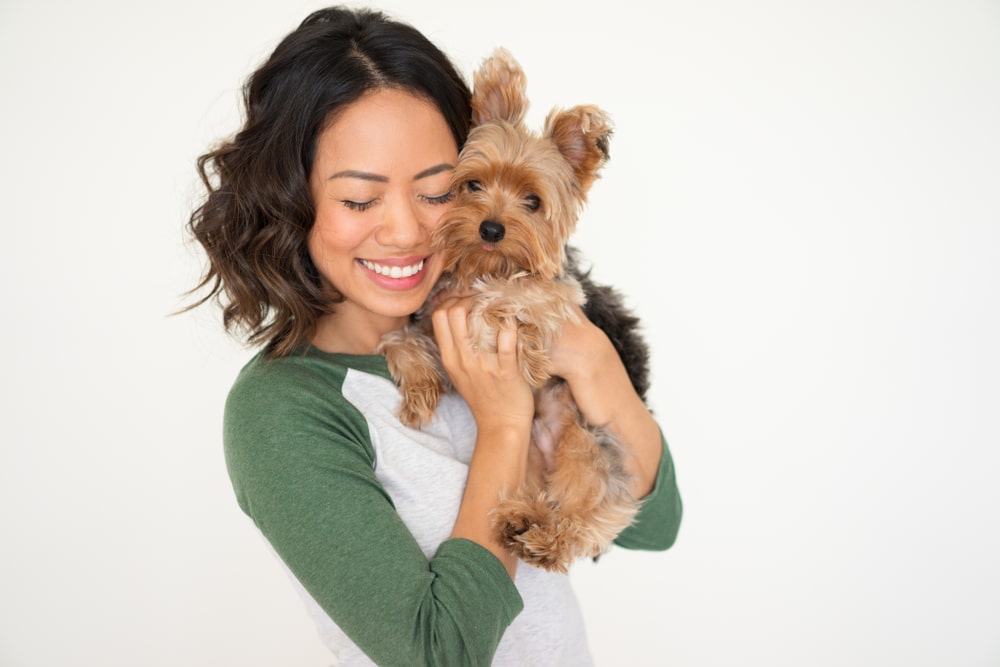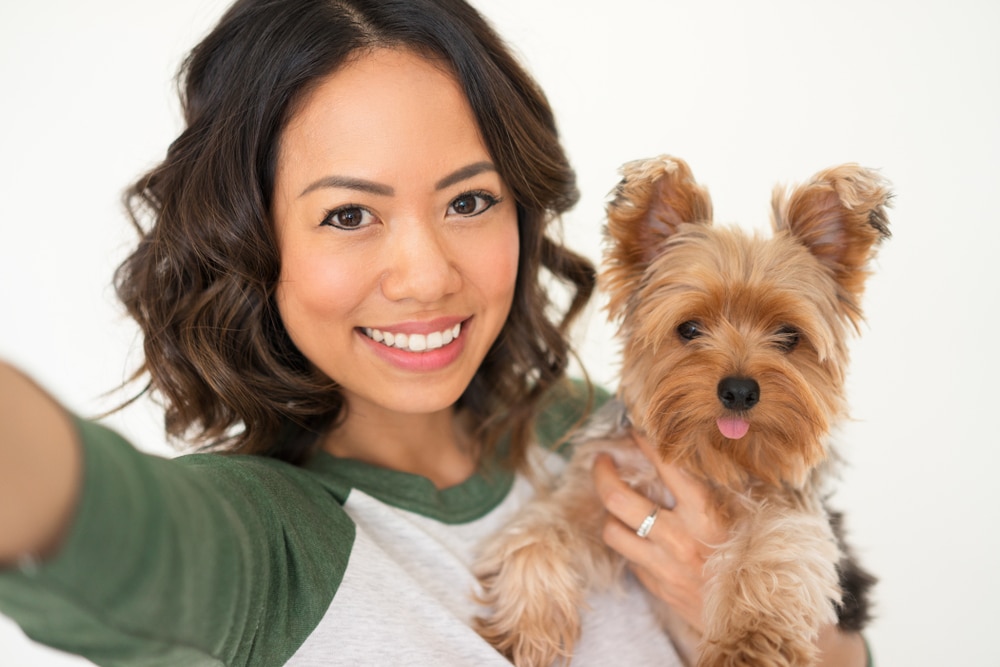Owning a dog can be an incredibly rewarding experience, but it’s also a big responsibility. If you’re considering adding a new dog to your family, there are several things you’ll want to know before making your decision and becoming an owner.
As a new dog owner, the things you’ll want to know are that you should take your time to research the breed, size, and energy levels of the dog that works best with your lifestyle. Additionally, you should consider your budget for purchasing a puppy, food, and supplies. Make sure to prepare your home for a dog and stock up with essential supplies like dog food, toys, and bedding. It is also important to search for a good veterinarian and take your pup for checkups in the first few weeks. You should also have a backup plan in case you’re unable to take care of your pup in certain situations, such as going on vacation.
Table of Contents
- Top 15 Things To Know For A New Dog Owner
- 1. Do Enough Research
- 2. Check Your Budget
- 3. Prepare Your Home For Your Dog
- 4. Search For A Good Veterinarian
- 5. Be Patient And Help Them Adapt To Their New Home
- 6. Prepare A Backup For Your Dog
- 7. Learn How To Communicate
- 8. Choose The Right Food
- 9. Go For A Microchip
- 10. Train Your Dog
- 11. Allocate Proper Time And Attention For Your Dog
- 12. Stay Calm During Setbacks
- 13. Socialization Is Important
- 14. Prepare For Behavior Problems
- 15. Be A Responsible Dog Owner
- In Conclusion: Things To Know As A New Dog Owner
Top 15 Things To Know For A New Dog Owner

Here are some tips a new dog owner should know to make the most of their relationships with their furry friend.
1. Do Enough Research
The first thing someone needs to know as a new dog owner is researching the breed you are considering is a must before getting a dog, as every breed comes with its own needs and temperaments. Knowing what to expect from the specific breed of dog will help you decide if it’s right for your family and lifestyle (take a look at what we had to say about Samoyeds for families, by the way).
Research can also help you plan for your dog’s future needs, like grooming (including conditioner) and exercise requirements.
2. Check Your Budget
Another thing to know as a new dog owner is that dogs come with a price tag. In addition to the initial purchase price of your new pup, consider the ongoing costs such as veterinary care, food, toys, and other necessary supplies. The first year of ownership averages around $4,800, and the estimated annual cost of owning a dog ranges from $734 to $1,040.
There are always unforeseen veterinary expenses when it comes to owning a dog, so it’s a good idea to keep some money set aside for this purpose. Dog insurance can help with these unexpected costs, so consider signing up for an insurance policy.
3. Prepare Your Home For Your Dog
Before bringing your pup home, make sure your house is puppy-proofed. Put away anything you don’t want your puppy to chew. Consider investing in pet gates to keep it in the safe spaces of your home.
You should also stock up on all the necessary supplies like food, a crate, beds, bowls, a collar, and a leash. Other items like identification tags, treats, toys, grooming, and cleaning supplies are also necessary.
4. Search For A Good Veterinarian
Finding a good veterinarian is essential to know as a new dog owner and to keep your pup healthy. Look through reviews, ask friends, and find the best possible vet for your puppy. Speak to your vet about vaccinations and other preventative healthcare plans.
The first few weeks are vital for your puppy’s overall well-being, so make sure to take it for regular checkups.
5. Be Patient And Help Them Adapt To Their New Home
When introducing your new pup to family members and other pets, try to keep the interaction short and casual. Don’t overwhelm the newcomer and make sure it has a private space like a crate where it can relax.
Give your pup time to adapt to its new environment and family members. Patience is key when introducing a new pet.
6. Prepare A Backup For Your Dog
If you’re busy for several days or taking a business trip, make sure to have a good backup plan for your pup.
Doggy Daycare: A doggy daycare center is a great option if you get home late at night. Your pup will be looked after and cared for in your unavailability.
Pet Sitter: Consider hiring a pet sitter who can look after your pup in case of any emergency or when you’re away for long periods of time.
You should also consider hiring a dog walker if you’re not available to take your pup for regular walks.
7. Learn How To Communicate
Your pup’s body language will tell you a lot about what it needs and wants. As a new dog owner, you need to know how to understand and interpret these cues.
Positive reinforcement techniques, such as rewards-based clicker training are the best way to develop a strong bond with your pup. This will help your pup learn quickly and keep it engaged with you. It’s also important to stick to the same command cues so your pup can understand them more easily.
8. Choose The Right Food
Feeding your pup the right kind of food can have a major impact on its health and happiness. Try introducing your dog to food that includes all the necessary ingredients for a balanced diet.
Some dogs are allergic to certain ingredients found in some foods, so watch out for any reactions your pup might show. If you notice any, switch the brand or consult with your vet. Also, add some soft food to its diet occasionally.
9. Go For A Microchip
A microchip is a tiny device placed painlessly between your dog’s shoulder blades under loose skin folds. It holds your pet’s unique ID number, and it will help to find your dog if it gets lost.
10. Train Your Dog
Your pup needs to be trained to understand basic commands and behave accordingly. It will also help you set boundaries for your pet, which is necessary for its safety. It usually takes 4-6 months for a pup to be fully house-trained.
Leash Training
Leash training is essential to save your pup from running in front of a car or jumping on someone. It helps to keep the public safe and your pup under control. Start leash training as soon as possible, with short sessions every day. Patience and consistency are key when it comes to leash training.
Potty Training
Potty training is important for the cleanliness of your house and should be started early on. Give your pup a specific spot to potty at. Take it there after every meal, and reward it with treats or praise when it goes in the right place.
Crate Training
A crate provides a safe and secure place to sleep and relax, away from all the hustle and bustle of your house. Make sure there are always treats in the crate to encourage your pup to go inside.
11. Allocate Proper Time And Attention For Your Dog
Make sure to set aside some time for your pup every day. Play with it, take it for a walk, or sit and cuddle. Your pup needs you for its emotional and physical well-being. Moreover, giving your pup proper time and attention regularly can help it stay healthy, happy, and strong.
12. Stay Calm During Setbacks
Training a dog is not child’s play and will require a lot of patience. Sometimes it may break something inside the house, chew your shoes, and eat something from the trash. It is all part of having a pup.
It would be best if you stayed patient and calm during such setbacks, as getting angry will only worsen the behavior in the long run.
13. Socialization Is Important
Socialization is an essential part of a pup’s development you should never ignore. It will help your pup become more confident and comfortable with its surroundings.
So, make sure to introduce your pup to different people, animals, and new places. Also, take it out for regular walks and to dog parks and let it socialize with other dogs.
14. Prepare For Behavior Problems
As your pup grows up, it may start showing some behavior problems. This could include chewing things, barking excessively, digging in the garden, etc. Boredom, malnutrition, injury, or illness are the factors that can create behavior problems in dogs.
To deal with such issues, it is important to stay calm and try to understand the underlying cause. It is best to avoid punishing it and to help to solve their problems instead.
15. Be A Responsible Dog Owner
The most important thing to remember as a dog owner is you are responsible for your dog’s life. Take all the necessary steps to keep your dog safe, healthy, and happy. Moreover, taking proper care of your pet is a moral responsibility and an important part of being a responsible dog owner.
In Conclusion: Things To Know As A New Dog Owner
Being a new dog owner can be overwhelming, but with some knowledge and preparation, it doesn’t have to be. Get your pup the necessary microchip implant, train it properly, allocate proper time and attention, stay calm during setbacks, socialize it regularly, prepare for behavior problems, and, finally, be a responsible pet owner.
So, with these tips in mind, you will successfully give your pup a happy and healthy life.
So, which tip do you think is the most important? Which one are you looking forward to trying out first? Let us know your thoughts and why in the comments below!
